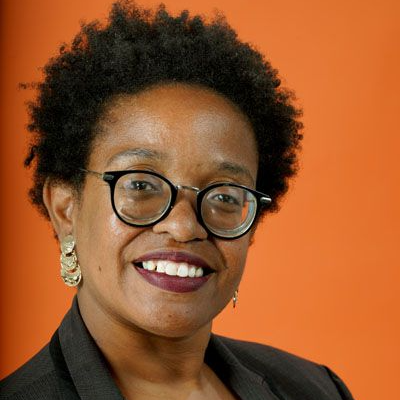A griot, in West African custom, is a storyteller who orally passes the history and culture of a people, making sure that this knowledge stays present throughout generations.
This weekend, writer and speaker Rhonda Lawson is following in that tradition to keep the stories and truths of Black history flowing.
“We are encouraging people to embrace the griot tradition and to educate our kids on who they are. We can’t just rely on schools to do it,” said Lawson, whose ninth annual Black History Month Literary Weekend celebration runs Thursday through Saturday.
The weekend features events that highlight the importance and vibrance of the past through spoken and written word, and connects Black authors with readers of all ages. There are author events at a Black-owned wine bar in Washington, D.C., and the Barnes & Noble in Bowie, culminating with a fancy gala-type event at the Harborside Hotel in Oxon Hill with a live auction and band.
Lawson became immersed in the unique stamp that Americans of African descent have made on our country while living in her native New Orleans. “The griot tradition ingrains in us things we will never learn in school,” she said.
When Lawson was young, she learned the story of Gilbert Academy, the all-Black prep school her grandmother attended, with future ambassador and U.S. Rep. Andrew Young, D-Ga., as one of her classmates.
Read More
“She told me how much pride she had in it, and that it gave her so much pride that her granddaughter was eventually able to go to college,” she said. “There are some stories we have to learn within our own families.”
And there, friends, is where oral history comes in. Lawson’s grandmother, raised in the segregated South, was able to explain the tensions and stakes of going to high school in the 1940s to her granddaughter, who is now here to tell that story and others to kids in 2025 for whom some of these concepts are probably foreign.
History is so close to us. Remember that Ruby Bridges, the first Black child to attend a formerly all-white elementary school in New Orleans, is only 70.
Lawson started the event in 2017 after retiring from the U.S. Army. She jokes that Black History Month in New Orleans is overshadowed by Mardi Gras. “We barely talked about Valentine’s Day,” she said, laughing. “But as an author I wanted to be able to celebrate literacy and our history as well.”
One of the most important parts of the weekend isn’t open to the public, but establishes the griot legacy: an event at two public schools in Bowie where featured authors can go meet with aspiring young Black writers.
“We want to help them see where they come from, and that there’s nothing new under the sun. These are the things that make us uniquely us,” Lawson said.
Like a lot of historians and educators I’ve interviewed about Black history — the teaching of which is under attack by the current presidential administration — Lawson acknowledged that this year has been “really interesting” in terms of the attempts to silence this history. And like those other experts, she has not been deterred.
“I feel like this is a really good time to celebrate our history, and telling it all month,” she said. “We don’t need an executive order to celebrate our culture.”





Comments
Welcome to The Banner's subscriber-only commenting community. Please review our community guidelines.